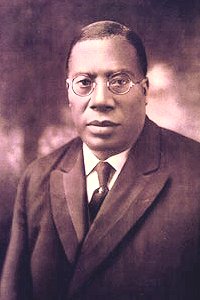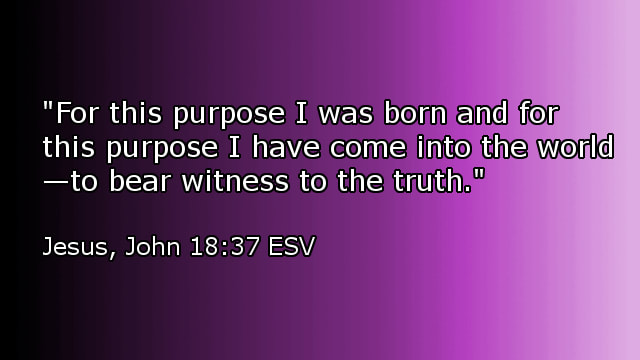"Let us run with endurance the race that is set before us, fixing our eyes on Jesus, the author and perfecter of faith ..." (Hebrews 12:1-2)
This lesson explains the meaning of the phrases "let us run with endurance," "the race that is set before us," and "fixing our eyes on Jesus" in Hebrews 12:1-2.
Consider. As a believer in Christ, are you enduring, remaining steadfast through the challenges in the spiritual race course that God has set before you?
Introduction
In today's lesson, the writer of the letter of Hebrews compares the Christian life to athletes running in the contests of the ancient Greek games. The writer begins Hebrews 12:1 with "Therefore, since we have so great a cloud of witnesses surrounding us ..." The witnesses surrounding us inspire us not as spectators but by their examples (Ref. 1 below). The writer of Hebrews describes many Old Testament saints who were faithful in their witness for God (see Hebrews 11:1-40).
In Hebrews 12:1-2 the writer encourages believers to "run with endurance the race that is set before us, fixing our eyes on Jesus." Let's examine each phrase to understand the rich meaning that the Greek words convey. 1. Let Us Run with Endurance
Definitions:
Run -- The Greek word for run [trechó] (trekh'-o) means to run or walk hastily (Strong's Exhaustive Concordance - Ref. 2). Figuratively, trechó means to advance speedily, like an athlete moving forward with full effort and directed purpose (HELPS Word-studies - Ref. 2). Also see 1 Corinthians 9:24. Like the athletes in the ancient Greek games, we are to advance with full effort in our Christian lives towards the goals that God sets for us (Philippians 3:13-14). Endurance -- The Greek word for endurance [hupomoné] (hoop-om-on-ay') means patience, and steadfastness under the challenges that God allots in our lives (Strong's Exhaustive Concordance and HELPS Word-studies - Ref. 3). As believers in Christ, as spiritual athletes, we are to endure, to remain steadfast, unswerved from our faith by even the greatest trials and sufferings (Ref. 3, James 1:2-4). Jesus himself endured the cross - for the joy that was set before him (Hebrews 12:2 italics added, Ref. 4). God promises to give us the strength to endure. "They who wait for the Lord shall renew their strength; they shall mount up with wings like eagles; they shall run and not be weary; they shall walk and not faint" (Isaiah 40:31). 2. The Race that is Set Before Us
Definitions:
Race -- The Greek word for race [agón] (ag-one') in Hebrews 12:1 means "a contest (struggle), a grueling conflict (fight)" (HELPS Word-studies - Ref. 5). The Apostle Paul uses the same Greek word in 1 Timothy 6:12, "Fight the good fight of faith; take hold of the eternal life to which you were called, and you made the good confession in the presence of many witnesses" (1 Timothy 6:12, italics added). At the conclusion of his ministry, Paul refers to the race he has run as a fight, "I have fought the good fight [agón], I have finished the course, I have kept the faith" (2 Timothy 4:7, italics and brackets added). Like Paul's experience, the race that God sets before us may be a struggle or a fight (2 Corinthians 11:23-28). However, God promises he is with us always through those struggles. Moses said to his people, "Be strong and courageous, do not be afraid or tremble at them, for the Lord your God is the one who goes with you. He will not fail you or forsake you" (Deuteronomy 31:6). Jesus said to his disciples and says to us today, "Lo, I am with you always, even to the end of the age" (Matthew 28:20).
Set before -- The Greek word for set before is prokeimai, which means to place before, in front of, and to be appointed (Thayer's Greek Lexicon - Ref. 6).
God is the One who sets the race course before us, and not we ourselves. Secular texts and self-help books may teach us to set goals without input from God. However, as believers in God and disciples of Christ, we should seek to know the goals that God has appointed for us, and then we press on to reach those God-given goals with the skills and endurance that God supplies us. The Apostle Paul gives us his example. "Forgetting what lies behind and reaching forward to what lies ahead, 14 I press on toward the goal for the prize of the upward call of God in Christ Jesus" (Philippians 3:13-14). If you don't know what goals or "next steps" God has in mind for you to accomplish, ask him. "But if any of you lacks wisdom, let him ask of God, who gives to all generously and without reproach, and it will be given to him" (James 1:5). "The mind of man plans his way, But the Lord directs his steps" (Proverbs 16:9). 3. Fixing Our Eyes on Jesus
Definition:
The Greek word for fixing [aphoraó] (af-or-ah'-o) in Hebrews 12:2 means looking away from all else, to fix one's gaze upon (HELPS Word-studies - Ref. 7). Fixing our eyes on Jesus requires not only looking to Jesus but also turning away from all else that distracts our eyes including worldly lusts (1 John 2:15-17) and the sin that entangles us (Hebrews 12:1). Hymn writer Helen H. Lemmel captures the meaning of fixing our eyes on Jesus in the hymn, "Turn Your Eyes upon Jesus" (Ref. 8): "Turn your eyes upon Jesus, Look full in His wonderful face, And the things of earth will grow strangely dim, In the light of His glory and grace." As believers in Christ saved by grace (Ephesians 2:8-9), we are to turn away from all worldly lusts and sins that distract our eyes and turn our eyes exclusively to Jesus who is the author and perfecter of faith (Hebrews 12:2). Summary - the Main Principles in this Lesson
1. Like the athletes in the ancient Greek games, as believers in Christ, we are to advance with full effort in our Christian lives towards the goals that God sets for us.
2. As spiritual athletes, we are to endure, to remain steadfast, unswerved from our faith by even the greatest trials and sufferings. God promises to give us the strength to endure. 3. The race that God sets before us may be a struggle or a fight. However, God promises he is with us always through those struggles. 4. God is the One who sets the race course before us, and not we ourselves. If you don't know what goals or "next steps" God has in mind for you to accomplish, ask him. 5. As believers in Christ saved by grace, we are to turn away from all worldly lusts and sins that distract us and turn our eyes exclusively to Jesus who is the author and perfecter of faith.
Apply. Be a spiritual athlete. Run with endurance the race that God has set before you. Complete your race faithfully with your eyes fixed on Jesus.
References
1. The NIV Study Bible, Zondervan Bible Publishers, 1985, note on Hebrews 12:1 2. https://biblehub.com/greek/5143.htm 3. https://biblehub.com/greek/5281.htm 4. https://biblehub.com/greek/5278.htm 5. https://biblehub.com/greek/73.htm 6. https://biblehub.com/greek/4295.htm 7. https://biblehub.com/greek/872.htm 8. https://library.timelesstruths.org/music/Turn_Your_Eyes_upon_Jesus/
1 Comment
"And there arose a fierce gale of wind, and the waves were breaking over the boat so much that the boat was already filling up. Jesus Himself was in the stern, asleep on the cushion; and they woke Him and said to Him, 'Teacher, do You not care that we are perishing?' And He got up and rebuked the wind and said to the sea, 'Hush, be still.' And the wind died down and it became perfectly calm. And He said to them, 'Why are you afraid? Do you still have no faith?' They became very much afraid and said to one another, 'Who then is this, that even the wind and the sea obey Him?' " (Mark 4:37-41) "When the storms of life are raging, Stand by me (stand by me); When the storms of life are raging, Stand by me (stand by me); When the world is tossing me Like a ship upon the sea Thou who rulest wind and water, Stand by me (stand by me)." -- Charles Albert Tindley, 1905 This article describes the background and scripture allusions for the gospel hymn, "Stand by Me," by Rev. Dr. Charles A. Tindley. Consider. Are you going through a personal storm today? The same Jesus who rebuked the wind and said to the sea, "Hush, be still," can calm your personal storms.  Rev. Dr. Charles A. Tindley (Ref. 2) Rev. Dr. Charles A. Tindley (Ref. 2) Hymn Author and Composer. The Reverend Dr. Charles Albert Tindley (1851-1933) was an American Methodist minister and was one of the founding fathers of American gospel music (Ref. 1, Ref. 2). He was the son of a slave, and he taught himself to read and write. After the American Civil War he moved to Philadelphia as a young person where he found employment as a hod carrier (brick carrier) (Ref. 1). He and his wife Daisy attended the Bainbridge Street Methodist Episcopal Church in Philadelphia where Charles became the sexton (janitor) (Ref. 1, Ref. 3). Tindley was never able to go to school (Ref. 1). He was self-taught, never graduating from college or seminary, yet he acquired and read more than 8,000 books (Ref. 4). Tindley learned Hebrew through the help of a Philadelphia synagogue, and he learned Greek by taking a correspondence course through the Boston Theological School. Tindley qualified for ordination in the Methodist Episcopal Church by examination (Ref. 1). After serving churches in Delaware, New Jersey, and Maryland, Tindley later became the pastor at the same church in Philadelphia where he had been a janitor (Ref. 1, Ref. 4). Under his leadership and powerful preaching, the multi-racial congregation grew from 130 members to more than 10,000 members (Ref. 1, Ref. 3). Tindley was awarded honorary Doctor of Divinity degrees by Bennett College (North Carolina) and Morgan College (Maryland) (Ref. 1). Life was not easy for people in the northeastern United States at the turn of the 20th century. The area near Tindley's church was economically depressed, especially for African Americans during this time (Ref. 4). The hymn "Stand By Me" speaks to the difficulties that many of Tindley's parishioners faced (Ref. 4). Charles A. Tindley composed and published over 40 gospel songs (Ref. 1, Ref. 2). His best-known gospel songs include "Stand by Me" (Ref. 5), "Leave it There" (Ref. 6), and "We'll Understand It Better By and By" (Ref. 7). His song, "I’ll Overcome Some Day" (Ref. 8) was the basis for the American civil rights anthem "We Shall Overcome," popularized in the 1960s (Ref. 2). "Stand By Me" Scripture Allusions. Below I describe several phrases from the "Stand by Me" hymn text and their scripture allusions. To see the complete set of all five verses of the hymn text, please click either on the attached lyric sheet or hymn sheet.
Listen. The music for "Stand By Me" will encourage you. Watch one or both of the music videos below.
Apply. Thank Jesus for the times he has stood by you during the challenges you have faced in life. Ask Jesus to stand by you, to give you strength and courage, and to calm the storm you are going through today. References
1. https://en.wikipedia.org/wiki/Charles_Albert_Tindley 2. http://www.hymntime.com/tch/bio/t/i/n/tindley_ca.htm 3. http://www.dubois-theward.org/history/congregations/tindley-temple/ 4. https://www.umcdiscipleship.org/resources/history-of-hymns-stand-by-me 5. http://www.hymntime.com/tch/htm/s/t/a/n/standbym.htm 6. http://www.hymntime.com/tch/htm/l/e/a/v/leaveitt.htm 7. http://www.hymntime.com/tch/htm/w/e/l/u/welunder.htm 8. http://www.hymntime.com/tch/htm/i/l/l/o/illoverc.htm 9. https://biblehub.com/commentaries/benson/2_timothy/4.htm
"Let your light shine before men in such a way that they may see your good works, and glorify your Father who is in heaven." (Matthew 5:16)
"Whoever believes that Jesus is the Christ is born of God, and whoever loves the Father loves the child born of Him." (1 John 5:1)
This lesson is the third lesson in the series, "The Children of God" (Ref. 1, Ref. 2). This lesson is the second of two lessons on the Characteristics of a Child of God (Ref. 2). To learn more about "Becoming a Child of God," please review Ref. 1.
Consider. If someone asked you to describe the characteristics of a child of God, what would you say?
A Child of God Illumines Others with the Light of Christ
Jesus Christ himself is the light of the world (John 1:9, John 8:12). When Jesus said to his disciples, "You are the light of the world" (Matthew 5:14), Jesus described their (our) role to shine with his light, the light of Christ, upon the world. The light of Christ that we shine enlightens people and leads them to salvation and eternal life. When we are a child of God, we share the light of Christ upon the world effectively because the Holy Spirit indwells us and empowers us (John 14:16-17, Acts 1:8, Ref. 3).
A Child of God Should Have the Proper Motive in Doing Good Works
Jesus said, "Let your light shine before men in such a way that they may see your good works, and glorify your Father who is in heaven" (Matthew 5:16, italics added). We are to avoid doing good deeds for ostentatious ("look at me") purposes. Jesus criticized people who do good works to bring praise to themselves rather than to God (Matthew 6:1-6). Our motive as a child of God should always be to glorify God, not ourselves.
A Child of God Must Love All People
A child of God must love all people:
The Greek word for love in these verses above is agapaó, which means to have a preference for, wish well to, regard the welfare of (Thayer's Greek Lexicon, Ref. 4).
A Child of God Has the Witness of the Spirit
The Apostle Paul writes, "The Spirit Himself bears witness with our spirit that we are children of God" (Romans 8:16). The Greek word for bears witness with is summartureó which means to testify jointly, i.e. corroborate by (concurrent) evidence (Strong's Exhaustive Concordance, Ref. 5). When we are born of God, the Holy Spirit jointly testifies with our human spirit that God is our heavenly Father and that we are his child (Romans 8:15, Ref. 6 below).
A Child of God Should Be Alert (Watchful) and Sober (Free from Illusion)
The Apostle Paul begins 1 Thessalonians chapter 5 with "Now as to the times and the epochs, brethren, you have no need of anything to be written to you. For you yourselves know full well that the day of the Lord will come just like a thief in the night" (1 Thessalonians 5:1-2). Then Paul says, "But you, brethren, are not in darkness, that the day would overtake you like a thief; for you are all sons of light and sons of day ..." (1 Thessalonians 5:4-5, italics added).
Paul then states a characteristic of children of God, "so then let us not sleep as others do, but let us be alert and sober" (1 Thessalonians 5:6, italics added.) As a child of God:
Apply. In self-examination, consider each of the characteristics of a child of God covered in this lesson.
In the next, and final, lesson in this series, we will discuss the nature and benefits of our adoption as children of God.
Related Topics
"Becoming a Child of God" (John 1:12-13) "Characteristics of a Child of God - Part 1" (Matthew 7:16) "Our Adoption as God's Children" (Galatians 4:4-5)
References
1. http://www.ScriptureWay.com/home/becoming-a-child-of-god 2. http://www.ScriptureWay.com/home/characteristics-of-a-child-of-god-part-1 3. https://biblehub.com/commentaries/jfb/matthew/5.htm 4. https://biblehub.com/greek/25.htm 5. https://biblehub.com/greek/4828.htm 6. Kenneth S. Wuest, "Wuest's Word Studies from the Greek New Testament," Wm B. Eerdmans Publishing Company, 1973 7. https://biblehub.com/greek/1127.htm 8. https://biblehub.com/greek/3525.htm
"In all things show yourself to be an example of good deeds, with purity in doctrine, dignified, sound in speech which is beyond reproach, so that the opponent will be put to shame, having nothing bad to say about us." (Titus 2:7-8)
This lesson is the first in a series on "Biblical Principles of Sound Speech" and focuses on Paul's instructions to Titus in Titus 2:7-8.
Consider. Why is it important that we as Christians be examples of good deeds and sound speech? How does the "soundness" of our speech affect our witness for Christ?
1. Who was Titus?
Titus was one of the Apostle Paul’s converts to the Christian faith. Paul refers to Titus as "my true child in a common faith" (Titus 1:4). However, Titus was not a new convert. Titus had accompanied Paul to the Council at Jerusalem described in Galatians 2:1. When Paul wrote to the church at Corinth, he said, "As for Titus, he is my partner and fellow worker among you" (2 Corinthians 8:23). Titus was a godly, Christian teacher (Titus 2:1-8). Paul also commissioned Titus to appoint elders in each city in Crete (Titus 1:5).
"Considering the assignments given him, he (Titus) obviously was a capable and resourceful leader" (Ref. 1). 2. Be a good example
In Titus 2:7, Paul instructs Titus, "In all things show yourself to be an example of good deeds ..." The Greek word for the English word, "example," is tupos (pronounced too'-pos) and means a proper pattern or model for others to follow (Ref. 2). As Christian teachers and leaders, we are to lead and inspire others by being a good example -- a good pattern -- for others to follow. We should reflect the light of Christ and point people towards Christ rather than to ourselves. Jesus said, "Let your light shine before men in such a way that they may see your good works, and glorify your Father who is in heaven" (Matthew 5:16).
3. With purity in teaching
In Titus 2:7 in the New American Standard Bible, the English translation uses the words "with purity in doctrine." The Greek word for "doctrine" is didaskalia (pronounced did-as-kal-ee'-ah) and means instruction and teaching (Ref. 3).
The Greek word for "purity" is aphtharsia (pronounced af-thar-see'-ah) which means incorruptibility and genuineness (Strong's Exhaustive Concordance - Ref. 4). As teachers, we are to be free from lower motives such as seeking popular applause (Ref. 5). Our behavior as teachers and leaders must be pure [incorruptible]. 4. Sound in speech which is beyond reproach
In Titus 2:8, Paul continues his instruction to Titus and to us by extension. As part of our good example to others, Paul instructs Titus and us to be "sound in speech which is beyond reproach, so that the opponent will be put to shame, having nothing bad to say about us." The definition of "sound" in "sound speech" is healthy, pure, wholesome, and not deviating from the truth (Ref. 6). When we present God's truth to others, our speech (as well as what we write) is to be truthful, accurate, pure, healthy, edifying, graceful, timely, and presented in a loving manner that enhances the reputation of Jesus Christ (2 Timothy 2:15, Ephesians 4:29).
Summary of the principles in this lesson.
1. As Christian teachers and leaders, we are to be good examples -- good patterns -- for others to follow, reflecting the light of Christ, and pointing people to Christ, not to ourselves. 2. Our motives must be pure [incorruptible], not seeking the applause of others. 3. Our speech is to be sound -- healthy, pure, wholesome, and true -- speech that is timely and graceful -- speech that is presented in a loving manner that enhances the reputation of Jesus Christ.
Apply. Be a good example to others of good deeds and sound speech. Reflect the light of Jesus Christ, drawing people to him rather than gaining applause for yourself.
Related Lessons
"Biblical Characteristics of Sound Speech" (Ephesians 4:29) "Biblical Principles of Sound Speech - Our Heart and Our Mouth" (Matthew 15:18) "Biblical Principles of Sound Speech - A Time to Be Silent" (Ecclesiastes 3:7)
References
1. https://www.biblestudytools.com/titus/ 2. https://biblehub.com/greek/5179.htm 3. https://biblehub.com/greek/1319.htm 4. https://biblehub.com/greek/861.htm 5. https://biblehub.com/commentaries/ellicott/titus/2.htm Ellicott's Commentary on Titus 2:7 6. https://biblehub.com/greek/5199.htm
Then Pilate said to him, "So you are a king?" Jesus answered, "You say that I am a king. For this purpose I was born and for this purpose I have come into the world—to bear witness to the truth. Everyone who is of the truth listens to my voice." (John 18:37)
This lesson is the fifth and final in the series, "About the Truth."
Consider. Do you consider yourself to be a person “of the truth”? Are you listening to the voice of Jesus who is the truth?
Introduction. In today's scripture (John 18:37), Jesus was facing Pilate, the representative of the highest political authority on earth (Ref. 1). Jesus courageously and nobly said to Pilate that he was born to be a king and came into the world - to bear witness to the truth. Ellicott's Commentary says the natural interpretation (based on Greek verb tenses) is "To be king I have been born, and to be a king I have come into the world, in order that I may bear witness to the truth" (Ref. 2).
Pilate asked Jesus, "So you are a king?" (John 18:37). However, Jesus' kingdom was not a kingdom in the political sense that Pilate inferred (Ref. 1, Ref. 3). Jesus' kingdom was a kingdom in the spiritual sense (Ref. 4). Jesus said, "My kingdom is not of this world" (John 18:36). Jesus said, "For this purpose I have come — to bear witness to the truth."
Let's look at the meaning of the words for bear witness and truth. The English words bear witness are translated from the Greek verb martureó, which means bear witness, give evidence, testify, give a good report (Ref. 5). The Greek noun for truth is alétheia, which means reality, the opposite of what is false or illusion (Ref. 6). Jesus came into the world to show and tell mankind that God's truth is reality.
Consider these statements where Jesus bears witness to God's truth -- reality. "I am the way, and the truth, and the life; no one comes to the Father but through Me" (John 14:6). "If you continue in My word, then you are truly disciples of Mine; and you will know the truth, and the truth will make you free" (John 8:31-32). "For God so loved the world, that He gave His only begotten Son, that whoever believes in Him shall not perish, but have eternal life" (John 3:16). The above verses and the entirety of the Holy Bible are God's truth and are reality. "The entirety of Your word is truth, and all Your righteous judgments endure forever" (Psalm 119:160). Jesus said, "Everyone who is of the truth listens to my voice."
To whom is Jesus referring when he says "Everyone who is of the truth listens to my voice"? (John 18:37) People of the truth are people who listen to the voice of him who is the truth (Ref. 7). Jesus said, "My sheep hear My voice, and I know them, and they follow Me" (John 10:27).
Listening to (hearing) Jesus' voice prompts obedience (Ref. 8). People who are of the truth hear Jesus' words and yield obedience to him. Jesus said, "If you love me, you will keep my commandments" (John 14:15).
Apply. Listen to the voice of Jesus who has testified about God’s truth, which is reality. Testify to others about the reality of God in your life. Obey God’s words.
Related Lessons
"God's Truth in the Old Testament" (Psalm 119:160) "Jesus is the Truth" (John 14:6) "Know the Truth (John 8:32)" "The Spirit of Truth" (John 16:13-14)
References
1. https://biblehub.com/commentaries/jfb/john/18.htm 2. https://biblehub.com/commentaries/ellicott/john/18.htm 3. https://biblehub.com/commentaries/pulpit/john/18.htm 4. https://biblehub.com/commentaries/poole/john/18.htm 5. https://biblehub.com/greek/3140.htm 6. https://biblehub.com/greek/225.htm 7. https://biblehub.com/commentaries/ellicott/john/18.htm 8. https://biblehub.com/greek/191.htm |
Daily Bible Verse(Click the link above) AuthorMr. Whitney V. Myers. Christian. For more information, please visit the Author Page. Posting ScheduleI plan to provide new postings about once a month. Planned Topics(subject to change) Recent Posts(most recent three months) Popular Posts(top 10) Categories
All
Archives
July 2024
|
|
Copyright 2018-2024 Whitney V. Myers |
Listed in Feedspot's Top 100 Bible Study Blogs and Websites |





 RSS Feed
RSS Feed
